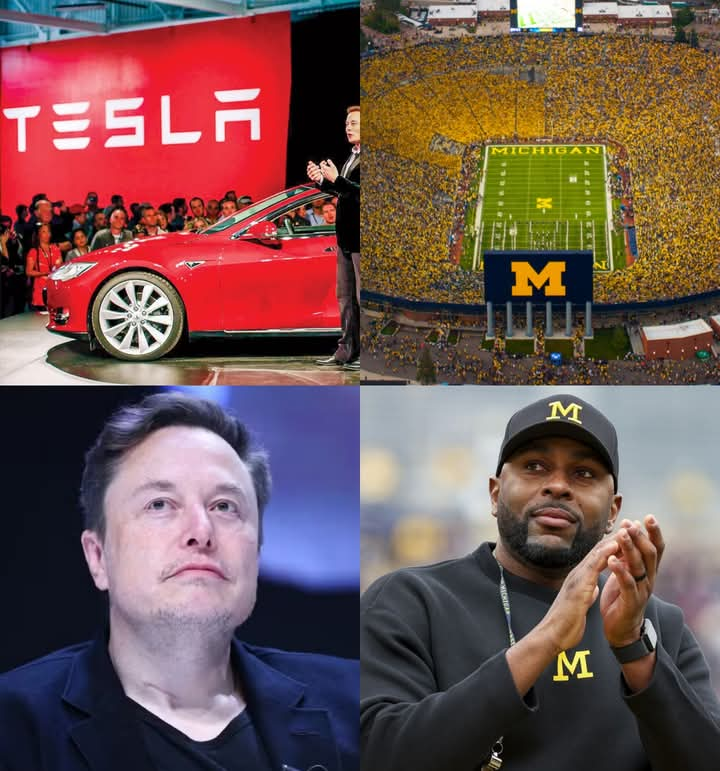Breaking News: Michigan Wolverines Reject Elon Musk’s Tesla Ad at The Big House — Here’s Why
In a surprising and bold move, the University of Michigan Wolverines have turned down a multi-million dollar advertising offer from tech mogul Elon Musk’s Tesla to feature at Michigan Stadium, famously known as “The Big House.” The decision has sparked conversations nationwide, especially as big-name sponsors increasingly flood college sports venues with high-dollar branding opportunities. But the Wolverines’ reasoning? It’s a mix of tradition, principle, and strategic focus.
Tesla, the electric vehicle giant, had reportedly approached Michigan Athletics with a lucrative proposal to prominently advertise during home football games at The Big House. The offer included digital signage, scoreboard branding, and Tesla vehicle showcases inside and around the stadium. The proposed partnership would have marked one of the largest commercial collaborations in college sports history.
However, Michigan Wolverines officials rejected the deal — emphatically.
According to sources within the university’s athletic department, the Wolverines’ decision was guided by a deeply rooted commitment to preserving the integrity and history of their iconic venue. “The Big House isn’t just a football stadium; it’s a historic landmark and a sacred space for generations of Michigan fans,” a university spokesperson said. “We value partnerships, but we prioritize legacy and our fan experience over commercial saturation.”
Insiders also noted that the deal was declined due to concerns about aligning with Tesla’s controversial public image. While Tesla remains a leader in electric vehicle innovation, Elon Musk’s polarizing social media presence and the company’s recent legal and labor issues raised red flags for university officials. The administration, it seems, was unwilling to tether its reputation to that of a figure as unpredictable as Musk — particularly when the university prides itself on academic integrity, social responsibility, and community values.
“Michigan isn’t for sale,” a senior athletics administrator reportedly told staff in a closed-door meeting. “We are proud of our self-sustaining athletics program and the legacy that keeps fans coming back to The Big House. Corporate money is tempting, but not at the cost of our identity.”
While some fans questioned the move, particularly amid the rising costs of maintaining competitive athletics programs, most alumni and supporters have applauded the Wolverines for standing firm. Social media saw an outpouring of praise for the school’s commitment to tradition over profit.
“Respect to Michigan for keeping The Big House sacred,” one fan posted on X (formerly Twitter). “Not everything needs to be branded.”
This decision also signals a growing tension in college sports — the clash between commercialization and tradition. As universities face increasing pressure to monetize their sports programs, especially with the rise of Name, Image, and Likeness (NIL) deals, Michigan’s stance could serve as a blueprint for other legacy programs seeking to retain their heritage.
For Elon Musk and Tesla, this rejection may be more than a temporary setback. It suggests that even the most powerful brands can’t simply buy their way into every institution — especially those with century-long histories and fiercely loyal fanbases.
Whether this move starts a trend remains to be seen. But for now, the Michigan Wolverines have made one thing clear: The Big House belongs to the fans — not the highest bidder.
